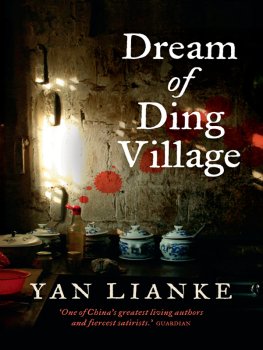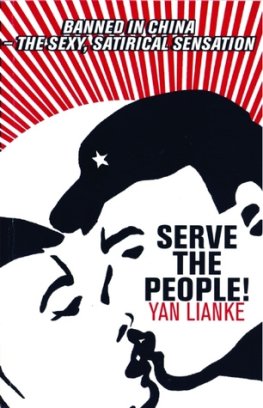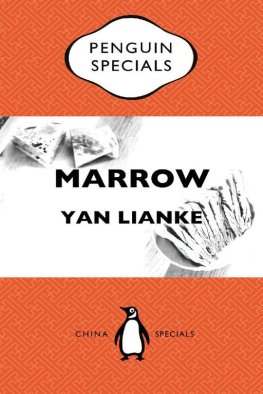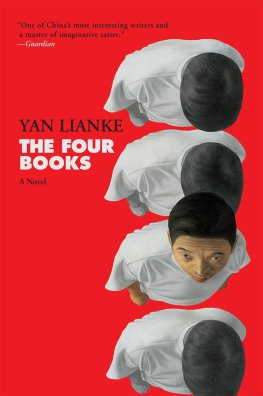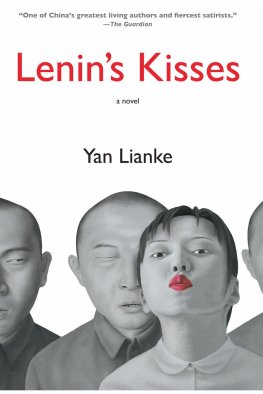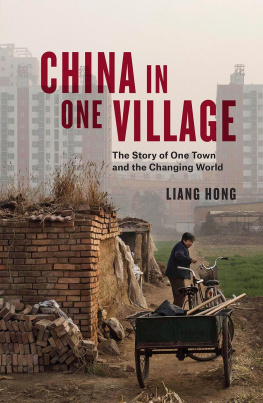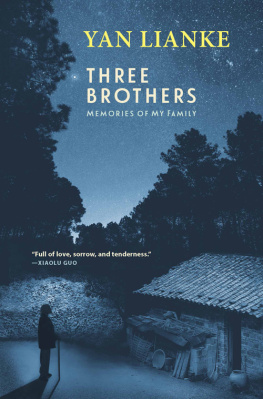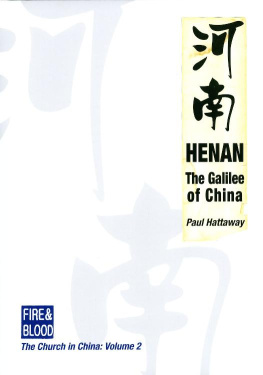Yan Lianke
Dream of Ding Village
ABOUT THE AUTHOR AND THE TRANSLATOR
Yan Lianke was born in 1958. He is the author of a number of novels, including Serve the People, also published by Text Publishing. He has received many literary awards, the most prestigious being the Lu Xun in 2000 and the Lao She in 2004. Yan Lianke lives in Bejing.
Cindy Carter is a Beijing-based translator of Chinese fiction, films, essays and poetry. Her translation of Xiaolu Guos novel Village of Stone was shortlisted for the Dublin IMPAC Award and the Independent Foreign Fiction Prize
VOLUME 1

The Cupbearers Dream
In my dream, behold, a vine was before me; and in the vine there were three branches and it was as though it budded, and her blossoms shot forth; and the clusters thereof brought forth ripe grapes: And Pharaohs cup was in my hand; and I took the grapes, and pressed them into Pharaohs cup, and I gave the cup into Pharaohs hand.
The Bakers Dream
I also was in my dream, and, behold, I had three white baskets on my head; and in the uppermost basket there was all manner of bakemeats for Pharaoh, and the birds did eat them out of the basket upon my head.
The Pharaohs Dream
Pharaoh dreamed: and, behold, he stood by the river. And, behold, there came up out of the river seven well-favoured kine and fat-fleshed, and they fed in a meadow. And behold, seven other kine came up after them out of the river, ill-favoured and lean-fleshed; and stood by the other kine upon the brink of the river. And the ill-favoured and lean-fleshed kine did eat up the seven well-favoured and fat kine. So Pharaoh awoke. And he slept and dreamed the second time; and behold, seven ears of corn came up upon one stalk, rank and good. And behold, seven thin ears and blasted with the east wind sprung up after them. And the seven thin ears devoured the seven rank and full ears. And Pharaoh awoke, and behold, it was a dream.
VOLUME 2

The dusk settles over a day in late autumn. The sun sets above the East Henan plain, a blood-red ball turning the earth and sky a deep shade of crimson. As red unfurls, slowly the dusk turns to evening. Autumn grows deeper; the cold more intense. The village streets are all empty and silent.
Dogs are in their dens.
Chickens at roost in their coops.
The cows have returned early from the fields and are snug in their sheds.
The silence is intense. Yet even in the absence of voices or sound, Ding Village lives on. Choked by death, it will not die. In the silent shades of autumn, the village has withered, along with its people. They shrink and wither in tandem with the days, like corpses buried underground.
The grass upon the plain has turned brittle and dry. The trees are all bare; the crops have withered. The villagers are shrunken inside their homes, never to emerge again.
Ever since the blood came. Ever since the blood ran red.
Dusk had spread across the plain by the time my grandpa Ding Shuiyang returned from the city. He arrived on the long-distance coach that travels between Wei county and the distant city of Kaifeng, the bus dropping him at the edge of the main road like a fallen leaf.
The concrete road linking Ding Village with the outside world was built ten years ago, when everyone in the village was caught up in the blood-selling boom. As Grandpa stood at the roadside looking towards the village, a gust of wind seemed to clear his head and restore order to his muddled thoughts. Things he hadnt understood before began to fall into place. For the first time since hed left the village early that morning to meet with the county cadres, the fog seemed to lift. There, standing at the roadside that linked Ding Village to the rest of the world, realization dawned on him. The realization that with clouds come the rain. That late autumn begets winters chill. That those who had sold their blood ten years ago would now have the fever. And that those with the fever would die, as surely as the falling leaves.
The fever hid in blood; Grandpa hid in dreams.
The fever loved its blood; Grandpa loved his dreams.
Grandpa dreamed most every night. For the last three nights, hed had the same dream: the cities hed visited Kaifeng and Wei county, with their underground networks of pipes like cobwebs running thick with blood. And from the cracks and curvatures of pipes, from the l-bends and the u-bends, blood spurts like water. A fountain of brackish rain sprays the air; a bright-red assault on the senses. And there, upon the plain, he saw the wells and rivers all turned red, rancid with the stench of blood. In every city and every township, doctors wept as the fever spread. But on the streets of Ding Village, one lone doctor sat and laughed. Bathed in golden sunlight, the village was silent and peaceful, its residents behind locked doors. But, day by day, the doctor in his white lab coat, his physicians bag at his feet, would sit perched upon a rock beneath the scholar trees and laugh. Ha-ha-ha-ha-ha. The sunshine would be filled with the sound of laughter. A big loud belly-laugh, ringing out as clear as a bell, strong enough to shake the trees and make the yellow leaves rain down, as surely as the autumn breeze . .
And when the dream had ended, the county bigwigs the higher-ups summoned Grandpa for a meeting. Since Ding Village no longer had a mayor, it was left to Grandpa to go instead. He returned to the village with an understanding of certain facts, like a series of links in a chain.
The first thing Grandpa had learned was that the fever wasnt really a fever at all. Its proper medical name was Acquired Immune Deficiency Syndrome, or AIDS. The second thing was that those who had sold their blood so many years ago, and who had come down with a fever within a fortnight of selling it, would now have AIDS. The third thing was that the first symptoms of AIDS wouldnt appear until eight, nine, or even ten years later. Most people, mistaking the symptoms for a common cold, would take medicine to bring down their fever and before long, they would be back to normal. But a few months later, the disease would flare up again, and the symptoms would be much worse: weakness, skin sores, ulcers on the mouth and tongue, dehydration and weight loss. By then, you had only a few months to live. You might manage to hang on for six months, maybe even eight or nine, but very few made it through a year. In the end, everyone who got sick died.
They died like falling leaves.
Their light extinguished, gone from this world.
The fourth thing was something Grandpa already knew: that for the past two years, people in the village had been dying. Not a month went by without at least one death, and nearly every family had lost someone. After more than forty deaths in the space of two years, the graves in the village cemetery were as dense as sheaves of wheat in a farmers field. Some of those who got sick thought that it was hepatitis, while others called it a shadow on the lungs. Still others, with perfectly healthy livers and lungs, lost their appetites and couldnt stomach food. A fortnight or so later, thin and coughing or vomiting blood, they died. Died like falling leaves, their light gone from this world . . Afterwards, the other villagers would claim they had died of gastritis or hepatitis, of tuberculosis, or of a disease of the stomach or liver or lungs. But, in fact, it was the fever. Every one of them had died of AIDS.
The fifth thing Grandpa learned was that AIDS had originally been a foreigners disease, a big-city disease rumoured to affect only deviant people. But now China had it, too. It was spreading across the countryside, and those who were getting sick were normal, upstanding people. The sickness came in waves, like swarms of locusts descending over a field and destroying the vegetation. If one person got sick, the only certainty was that many more would soon follow.

